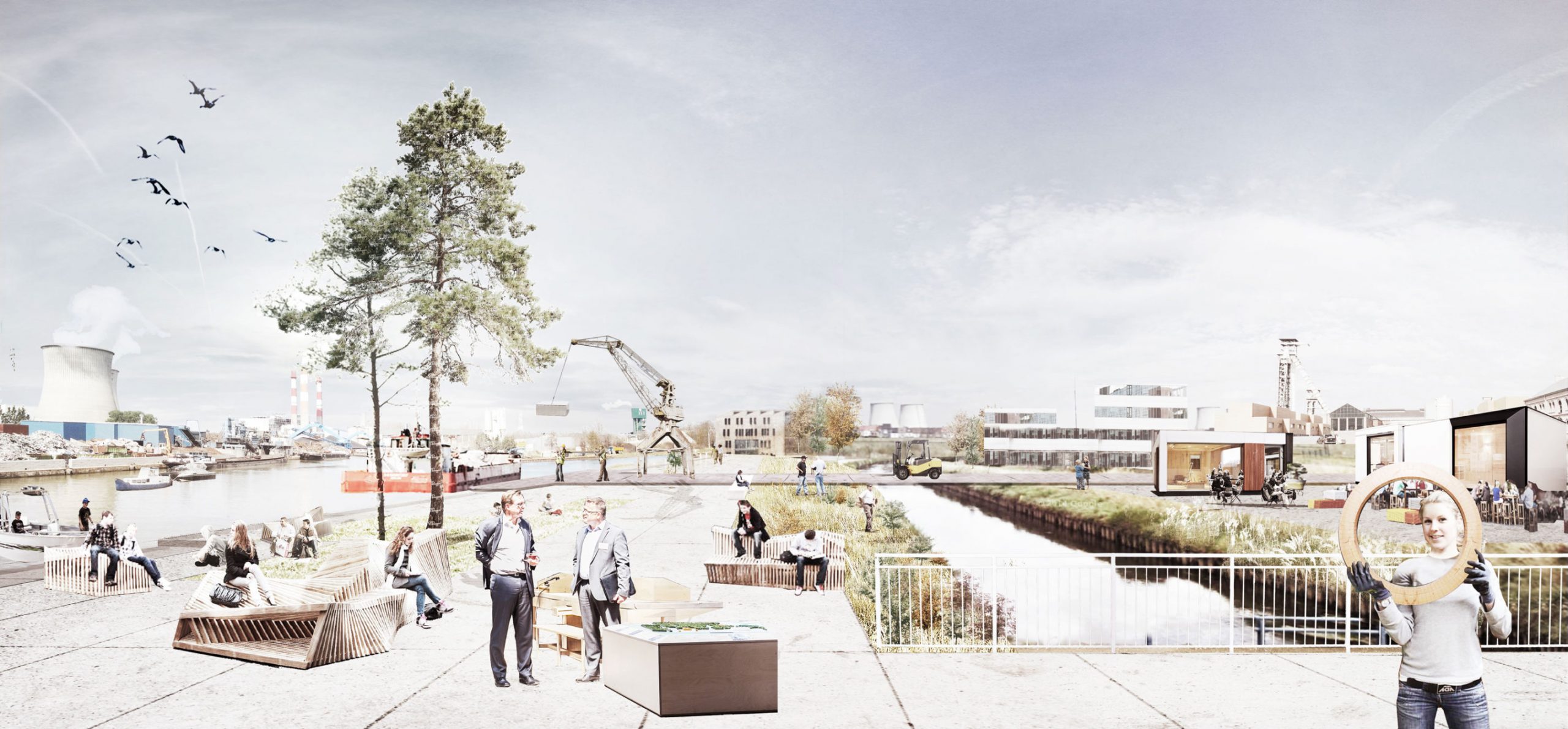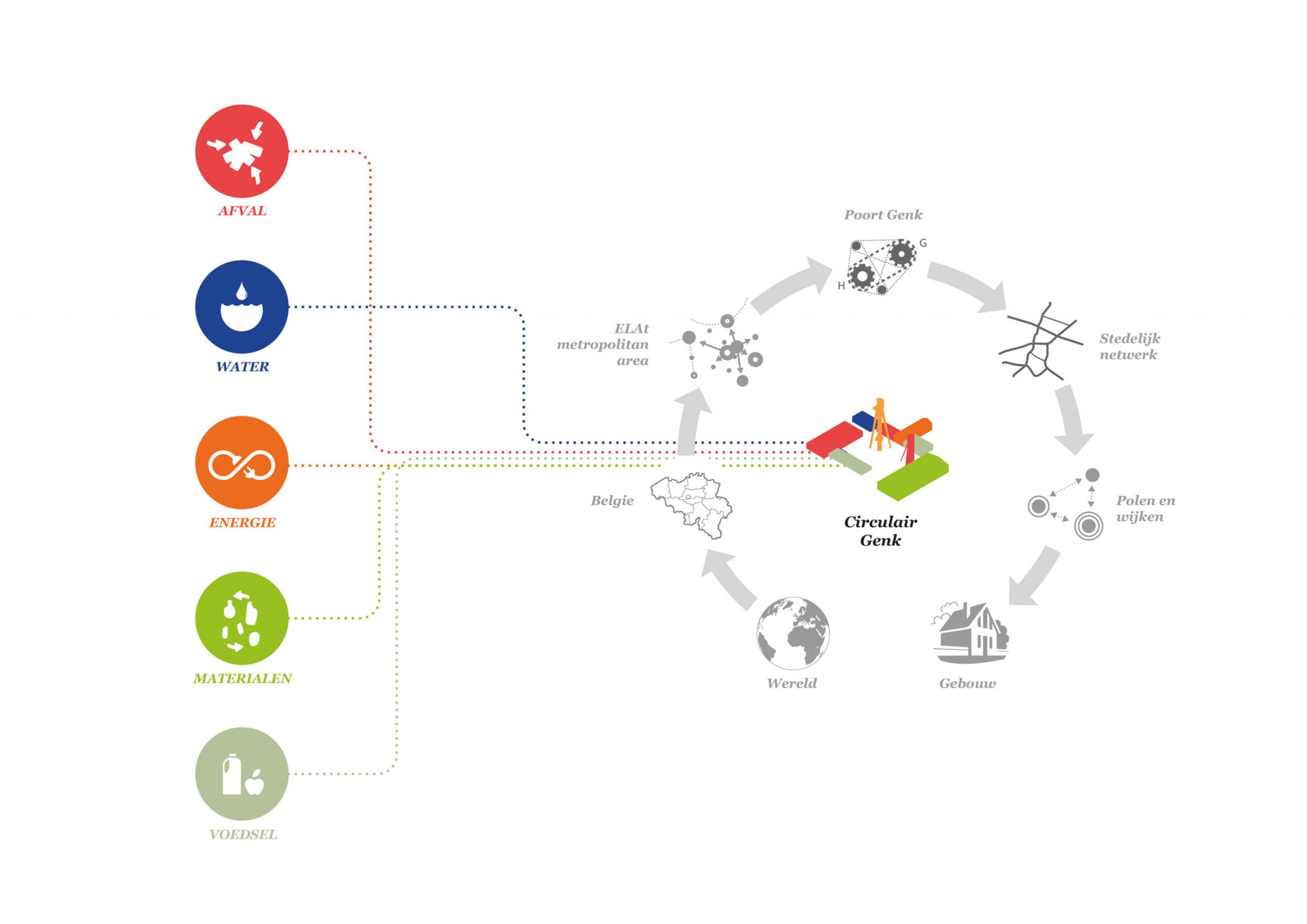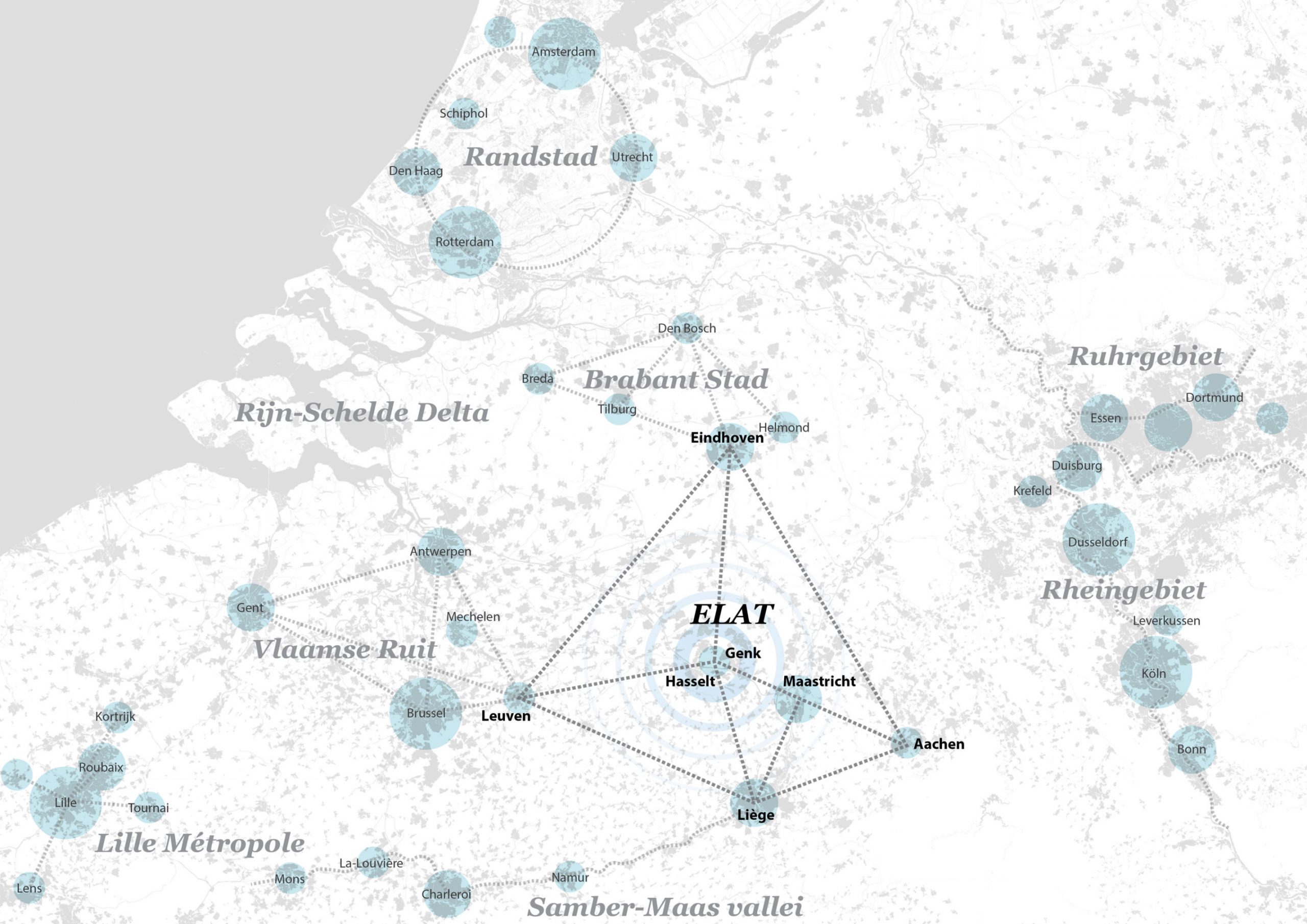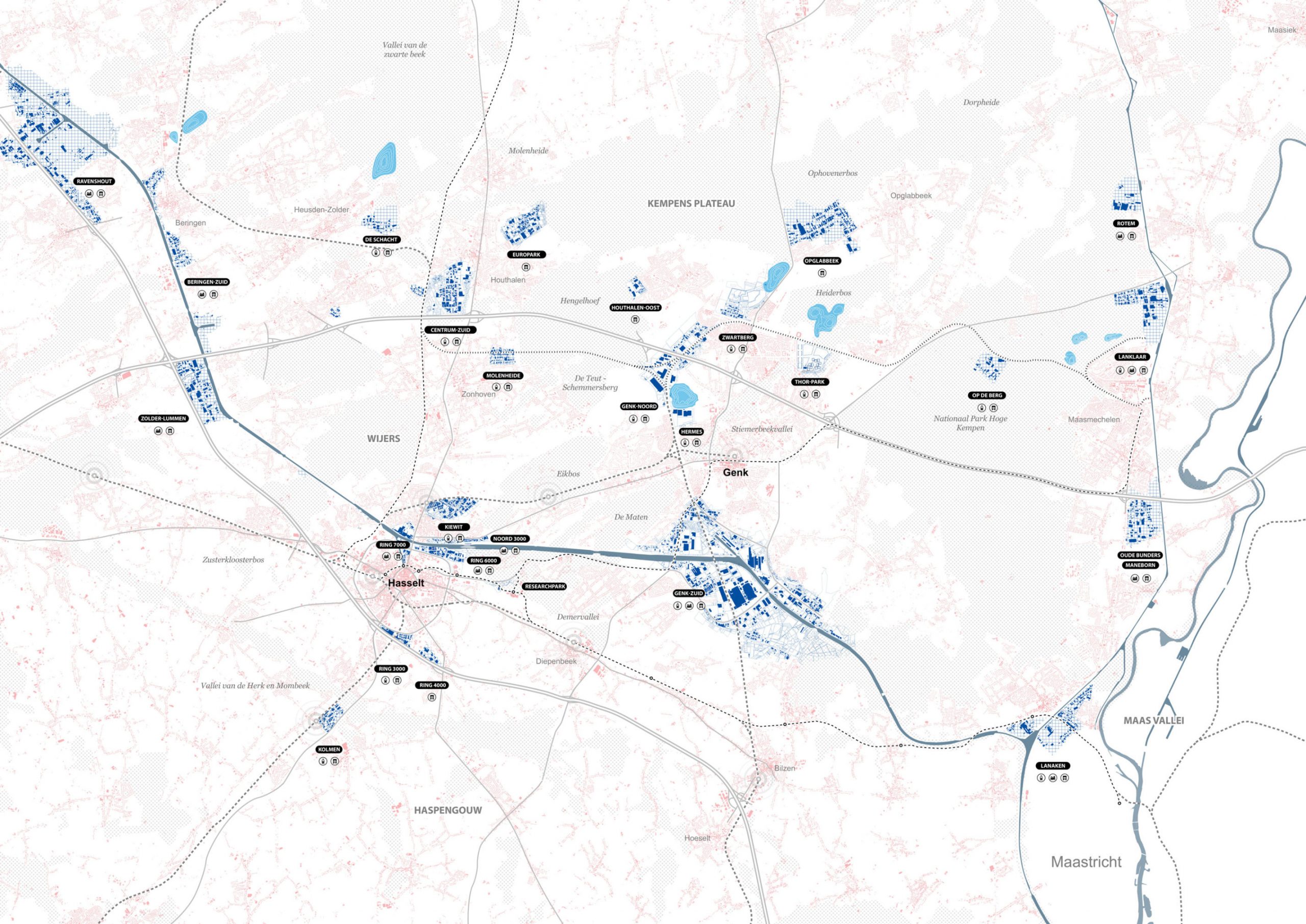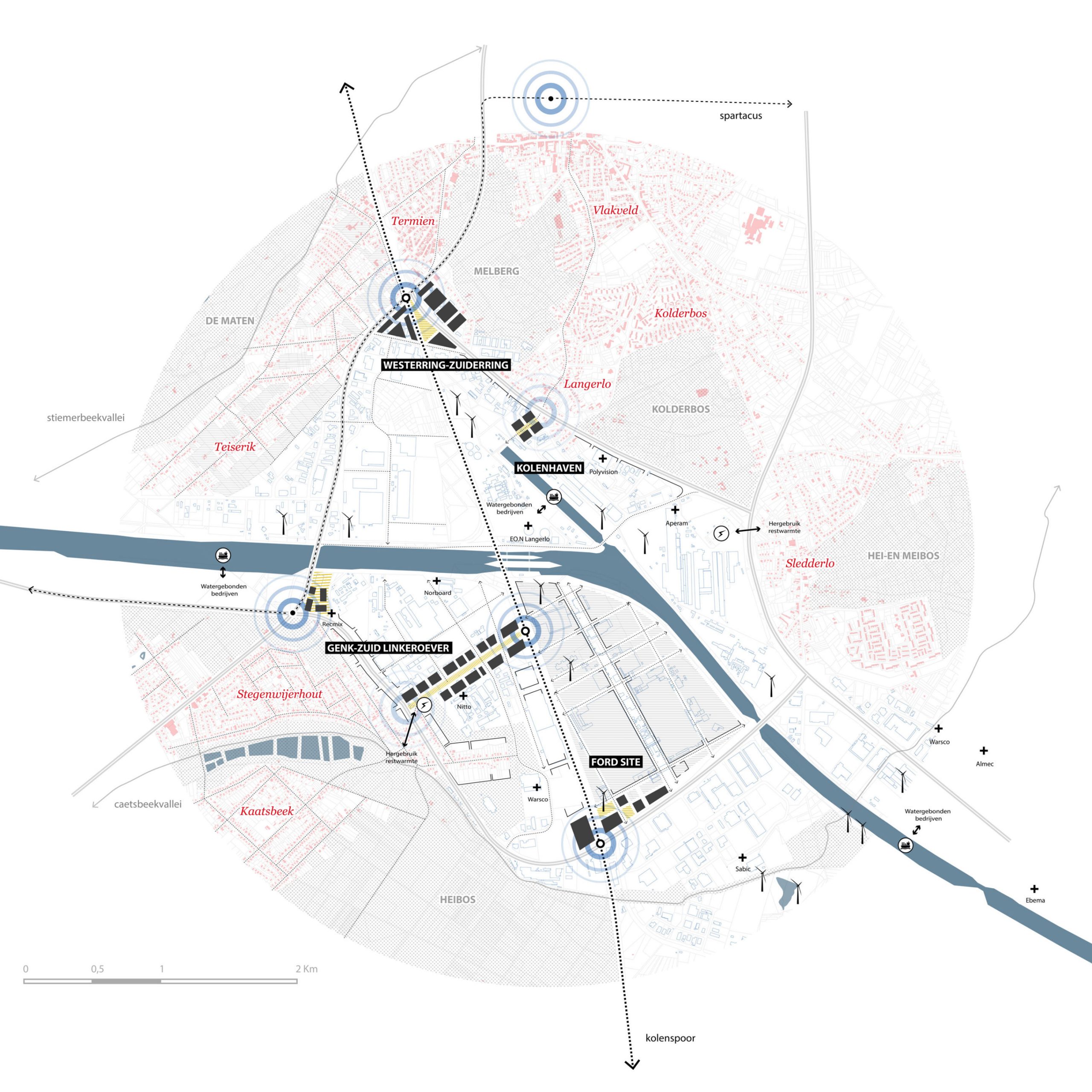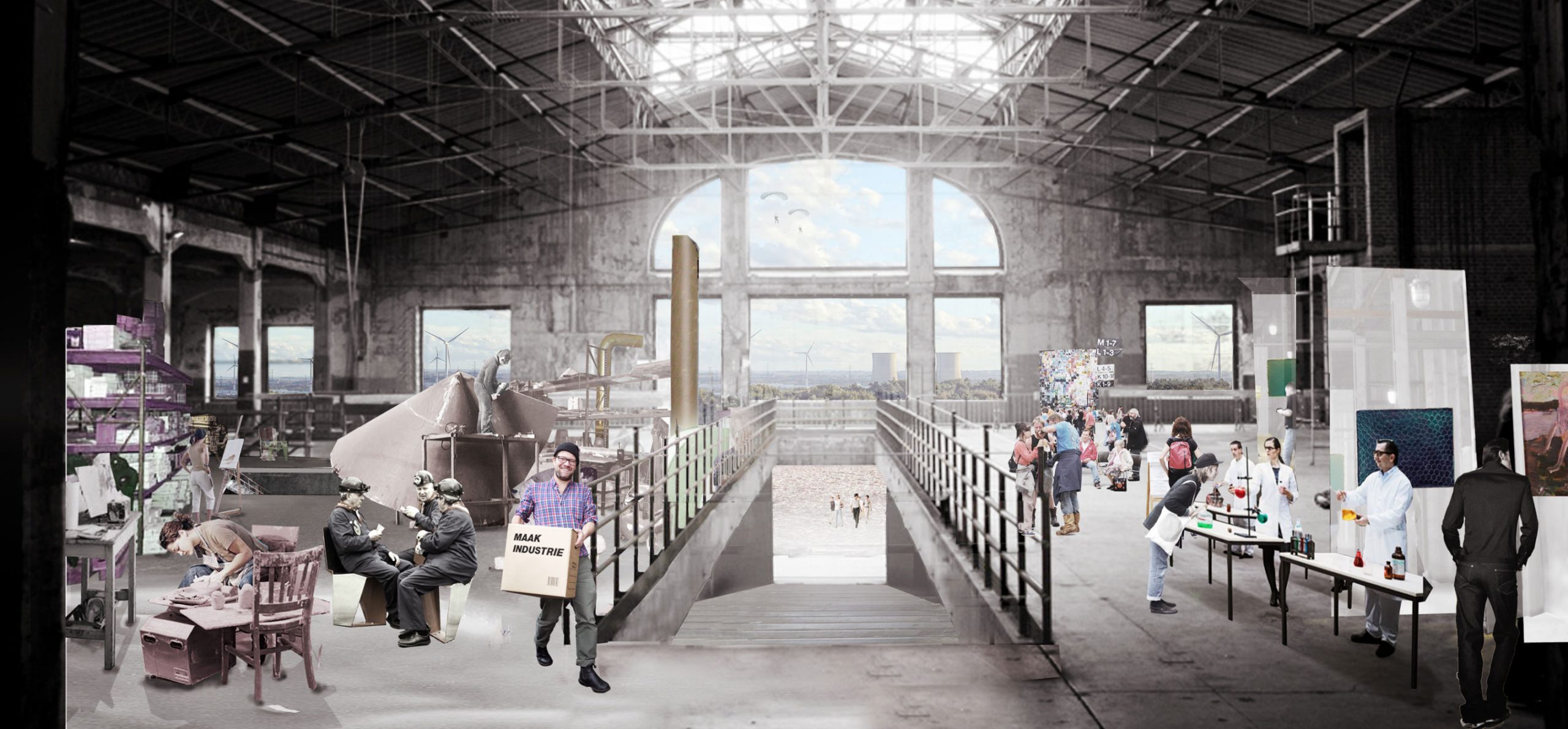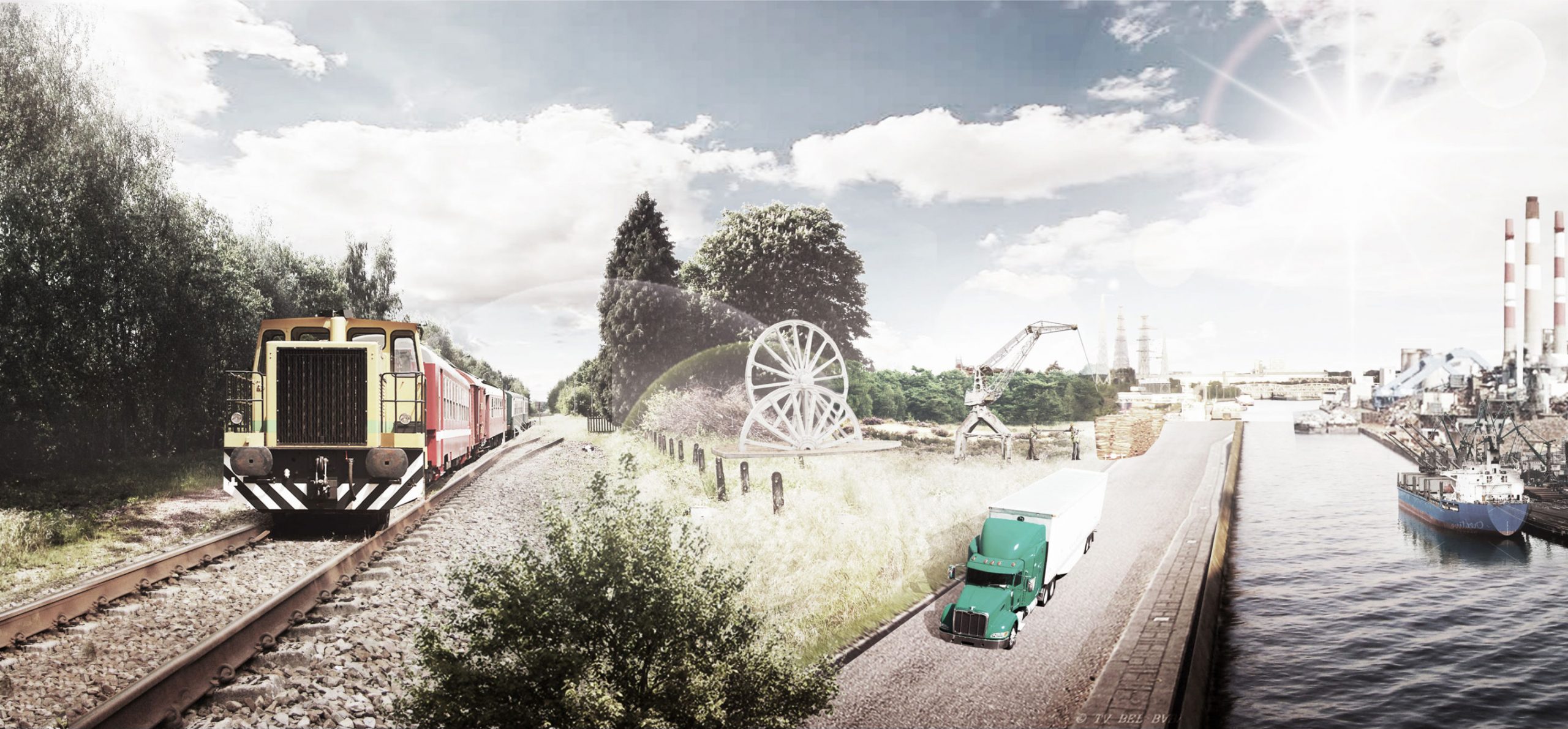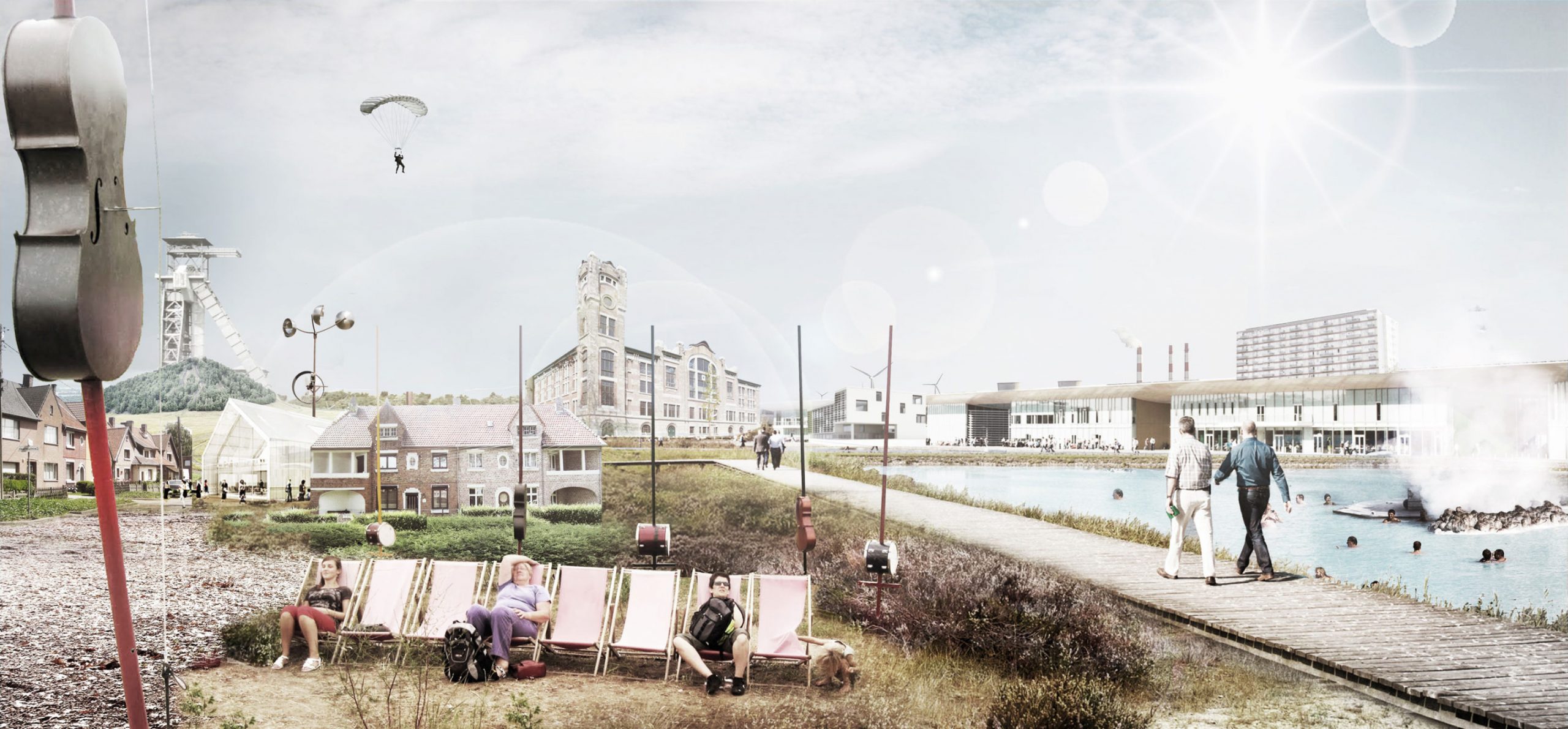An increasing number of municipalities, cities and regions have made the transition to circular economy. Genk, Hasselt and Houthalen-Helchteren have also decided to do so, not only because they embrace the principles of circular economy, but most of all because the Gate of Genk is very well placed to hold a unique position within this new form of economy. Their major ambition is to achieve this status by 2030. RebelGroup, The Rock Group and BUUR have combined their specific expertise and their mutual passion for innovative research to carry out a prospective study for circular economy in the Gate of Genk.
Focusing on circular economy requires time, courage and decisiveness of all the actors involved, both public and private. But it requires most of all a clear and substantiated vision. Within the scope of the prospective research, a unique cross-departmental and intergovernmental cooperation has been set up between the Gate of Genk and the Flemish authorities, more in particular the department for Spatial Planning “Ruimte Vlaanderen” and the department for Material Streams and Waste Management “OVAM”. But they are not the only players involved. The “Agentschap Ondernemen”, “NV De Scheepvaart”, the Province of Limburg and the Provincial Development Agency (POM) of Limburg are also strongly committed to the project.
The team has chosen a bottom-up approach by organizing workshops gathering local entrepreneurs and – in some specific cases – local partners, in order to develop business cases that seemed achievable and promising in the eyes of all the actors involved. At the same time, pioneers of local and international circular economy assisted the team in defining the contextual preconditions that must be fulfilled to enhance the attractiveness of the Gate of Genk and adapt and develop the different circular economy business models to the local reality. To achieve this goal, the team started from the region’s significant (spatial) DNA and the first germs of circular economy already present in the area. The set up resulted into a broad based and differentiated vision supported by the region which allowed defining the significance of the Gate of Genk within the circular economy. By 2030, the Gate of Genk will have become the ultimate laboratory of the circular way of thinking and acting. It will be the cross-road of circular economy, interconnecting supra-local, interurban and local networks. The Gate of Genk focuses on (ecologic) manufacturing industries wanting to create a symbiosis between logistics and eco design. In order to achieve this goal, the team has suggested a number of measures to be taken.

